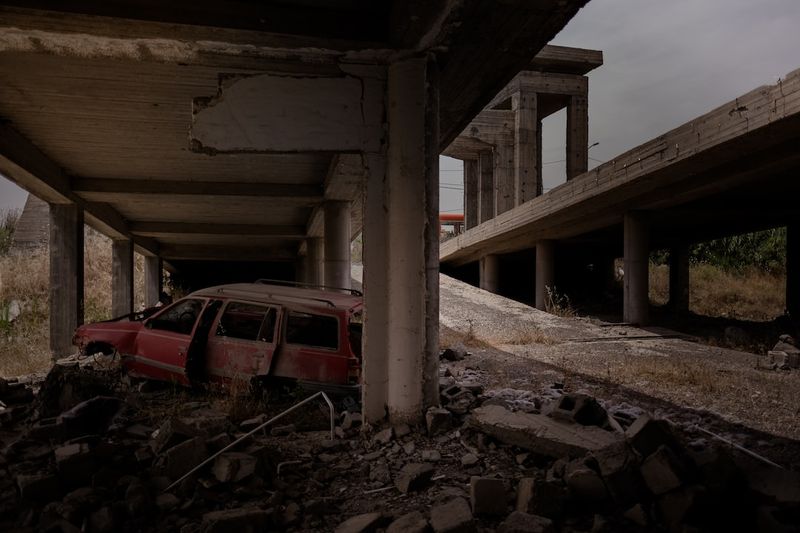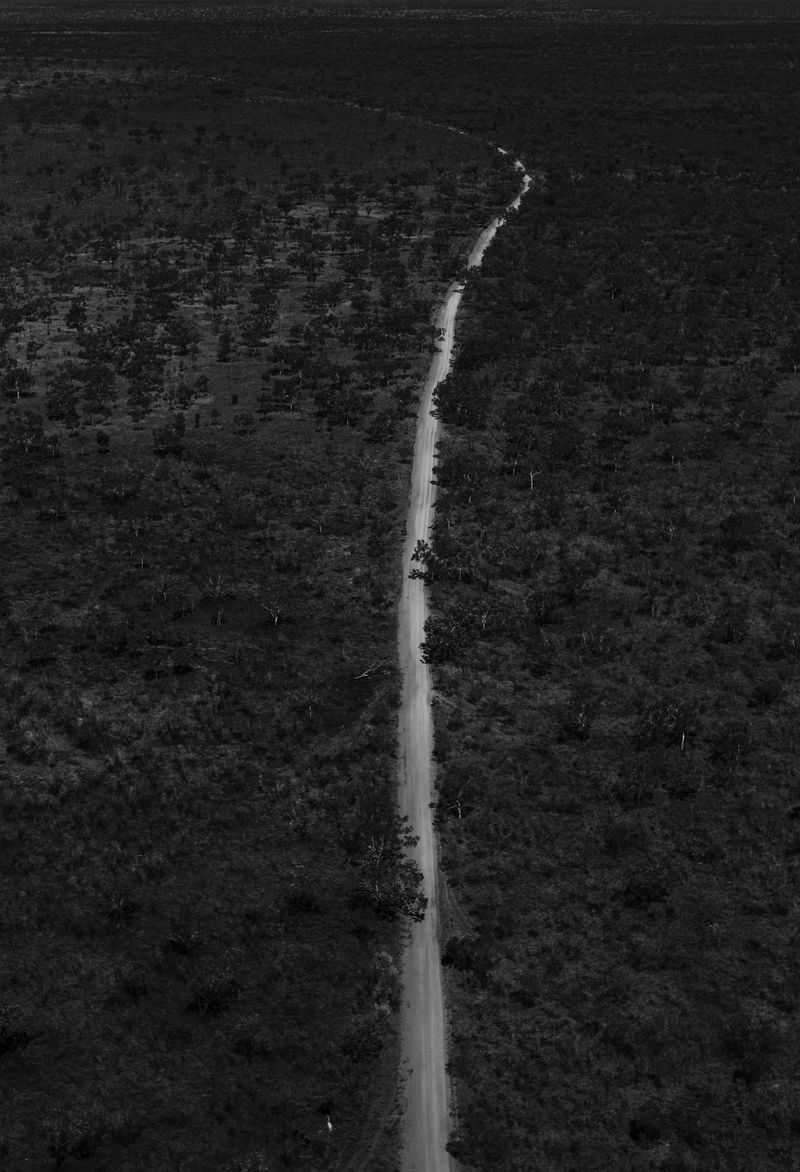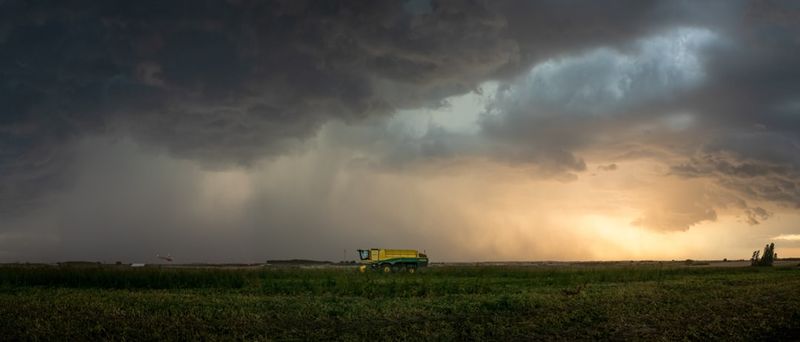Apocalyptic Weather Leaves Quebec Devastated
By | July 13, 2023
Destructive thunderstorms and torrential rain swept across the province of Quebec on Thursday, leaving many residents fearing for their lives. The extreme weather, reminiscent of scenes from apocalyptic films, included violent thunderstorms, hail, gusty winds, and at least one confirmed tornado.
Taking Shelter from the Storm
Residents, like Sabrina Fabre from Mirabel, sought refuge in their basements as they experienced the wrath of the storm. Fabre recalls, “I am convinced that the tornado passed over us. I was really trying to stay calm and reassure my children, but deep down, I was truly, truly scared.” The sound of debris hitting windows and the sight of trees being uprooted only added to the terror.
The tornado left a trail of destruction in its wake, with large trees uprooted and even a collapsed agricultural building in Sainte-Anne-des-Plaines. The severity of the storm was not confined to Mirabel but also affected areas such as Outaouais, Montérégie, and Greater Montreal. The Regates de Valleyfield site in Valleyfield reported significant damage, and trees were broken by the winds in Salaberry-de-Valleyfield.
A Province Under Siege
The storm continued its path of destruction, moving on to Mauricie before heading towards Quebec City. Earlier in the day, Ottawa was hit by a tornado, causing damage to numerous homes and resulting in one minor injury.
The severity of the storms prompted Environment Canada to issue alerts to millions of residents across Quebec, urging them to seek shelter from possible tornadoes. While only one tornado in Mirabel was officially confirmed by the agency, other swirling winds were being analyzed. Meteorologist Dominic Martel explained, “Having so many tornado alerts in a single day happens at least twice per summer. However, it is a bit more unusual for Montreal.”
An Unprecedented Deluge
In addition to the fear brought by the tornado, the storms brought between 50 and 80 mm of rain, causing widespread disruptions, particularly on the road network. The heavy rainfall led to numerous instances of flooding, resulting in the closure of several streets in Montreal. Some cars found themselves submerged in the rising waters. The overloaded sewer system caused at least 125 instances of sewage backup, according to reports received by the city, although the actual number could be much higher.
Thankfully, no injuries were reported at the time of writing. This storm comes just days after heavy rains caused flooding in Estrie and the Quebec region on Tuesday, making it the second time this week that nature has unleashed its fury.
Editorial: Understanding Extreme Weather Events
The recent severe weather events in Quebec serve as a stark reminder of the fragility of our environment and the increasing volatility of our climate. These extreme weather events are not isolated occurrences but part of a larger pattern that is becoming more evident across the globe.
Climate scientists have long warned about the consequences of human-induced climate change, with rising global temperatures leading to more frequent and intense storms. The destruction witnessed in Quebec is just one example of the devastating impact that climate change can have on communities and infrastructure.
At a time when the world is grappling with the effects of climate change, it is crucial that governments, businesses, and individuals take immediate action to reduce greenhouse gas emissions and adopt sustainable practices. Transitioning to renewable energy sources, adopting more efficient transportation methods, and implementing resilient infrastructure are just a few steps that can help mitigate the impacts of climate change.
In addition, communities must invest in early warning systems, disaster preparedness, and resilient infrastructure to minimize the damage caused by extreme weather events. Furthermore, the government should allocate resources to support affected communities, providing them with the necessary tools to recover and rebuild.
Advice for Quebecers
In the face of the increasing frequency and severity of extreme weather events, it is essential for individuals to prioritize their safety and be prepared. Here are some key tips to keep in mind:
1. Stay Informed
Pay attention to weather forecasts and warnings from official sources. Stay informed about any potential weather risks in your area.
2. Have an Emergency Plan
Create an emergency plan for your household, including an evacuation strategy and a communication plan. Ensure that every family member knows what to do in case of an emergency.
3. Prepare an Emergency Kit
Stock up on essential supplies such as food, water, medications, flashlights, batteries, and a first aid kit. Have enough provisions to sustain your family for at least 72 hours.
4. Secure Your Property
Take measures to protect your home, such as clearing gutters, trimming trees, and securing loose objects. Consider installing storm shutters or reinforcing windows and doors to minimize damage.
5. Stay Connected
Maintain good communication with family, friends, and neighbors during severe weather events. Check on vulnerable individuals, such as the elderly or those with special needs.
In the face of these challenging times, it is essential that we come together as a community, support one another, and work towards a sustainable and resilient future. The recent storms in Quebec should serve as a wake-up call, reminding us of the urgent need to address climate change for the well-being of our planet and future generations.

<< photo by Levi Meir Clancy >>
The image is for illustrative purposes only and does not depict the actual situation.
You might want to read !
- Inondations meurtrières : Le Grand-Duché de Luxembourg en état de catastrophe naturelle
- “Survival of the Thickest”: A Hilarious Netflix Comedy that Leaves You Wanting More
- [Toronto sous l’emprise de tornades et orages violents : la menace plane sur le Grand Toronto]
- Savage Showdowns: Ranking the Best Wolverine Fights in Marvel Comics
- “Black Mirror” Receives a Long-Awaited Software Upgrade in Season 6
- Tornades ravageantes frappent Montréal et Ottawa : le coût des dégâts et les mesures de prévention
- Labor Dispute: Hydro Ottawa and Union to Restart Negotiations
- Tornade menace dans Lanaudière: Les résidents en état d’alerte
- Chilly Outlook Persists in South Africa, Snowfall Unlikely to Return
- Snow Blankets South Africa: A Rare and Magical Sight
- Crisis in Sept-Îles: Evacuation Orders Persist Despite Uncertainty




